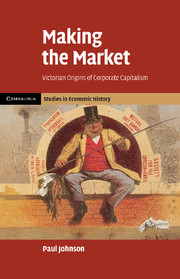3 - Coercion, custom and contract at work
Published online by Cambridge University Press: 06 July 2010
Summary
The freedom of workers to seek out those employments that best suited their abilities and preferences was seen by classical economists as a necessary element of an efficient economy. Without such freedom, the invisible hand of the market could not nudge workers from less to more productive employments. Hence the antipathy of classical economists to those myriad archaic laws and customs which interfered with the free working of the labour market. Adam Smith complained at length about apprenticeship and restrictions on the movement of workers, even though many of these restrictions were of limited significance by the 1770s. Although the principal restrictions of the 1563 Statute of Artificers relating to the fixing of wages by local justices, and to the seven-year duration of apprenticeship, were not repealed until 1813 and 1814 respectively, they were largely ignored by the end of the eighteenth century. A Tudor statute originally designed to respond to the disruptive economic effects of rural vagrancy had diminished relevance to a more integrated, more urban, more commercial economy which, in some years during the Napoleonic wars, exhibited clear signs of general labour shortage. Although a number of local attempts – successful and unsuccessful – were made in the early 1800s to use the provisions of the statute to obtain an increase in the formal wage rate and to preserve apprenticeship restrictions, they are notable for their rarity.
- Type
- Chapter
- Information
- Making the MarketVictorian Origins of Corporate Capitalism, pp. 66 - 102Publisher: Cambridge University PressPrint publication year: 2010



